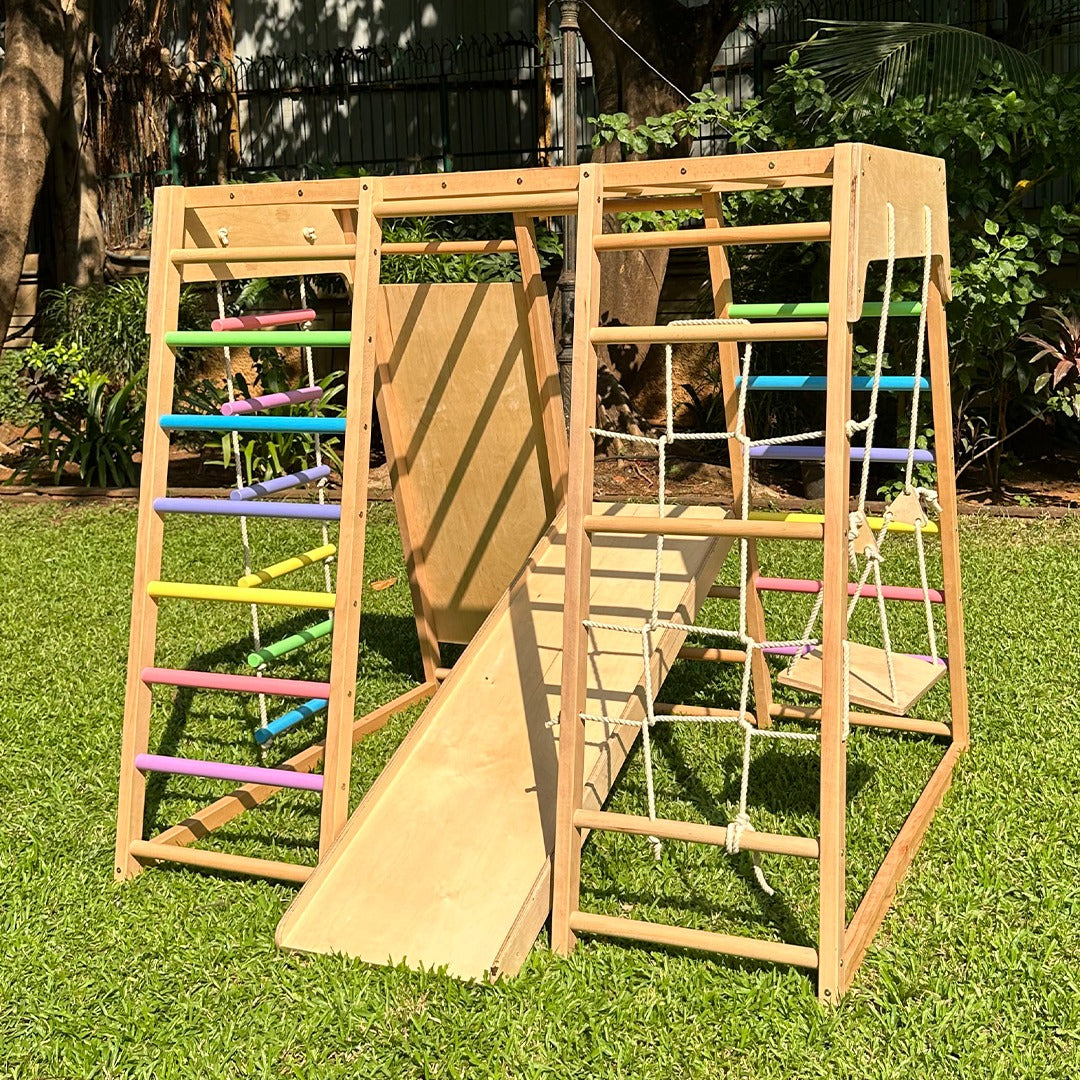As Indian parents in today's fast-evolving world, we find ourselves walking a beautiful, yet sometimes challenging, tightrope. On one side, we cherish our deep-rooted family values, the vibrant tapestry of our traditions, and the collective wisdom passed down through generations. On the other, we aspire to raise children who are confident, self-aware, and empowered to forge their own paths, expressing their unique identities in a global landscape.
This isn't about choosing one over the other; it's about finding harmony. It's about empowering our children to articulate their thoughts and feelings, to pursue their passions, and to develop a strong sense of self, all while deeply appreciating and respecting the incredible heritage that shapes who they are.
The Delicate Dance Between 'Me' and 'Us'
From the moment our little ones are born, they are immersed in a world rich with family. They learn the rhythm of festivals, the warmth of joint family gatherings, and the importance of respecting elders. These experiences are invaluable, shaping their sense of belonging and identity. However, as children grow, they naturally begin to explore their own preferences, opinions, and desires. A child might prefer painting to classical music, or want to wear bright mismatched socks to a family puja, much to the amusement or mild consternation of a grandparent.
This is where the 'me' starts to emerge within the 'us'. Our role isn't to suppress this budding individuality but to guide it, showing them how their unique light can shine brightly without dimming the collective glow of the family. It's about teaching them that being an individual doesn't mean detaching from their roots, but rather enriching them with their own distinctive colours.
Opening Doors for Their Authentic Self
One of the most powerful things we can do is create an environment where children feel safe to express themselves. This starts with truly listening, not just hearing. When your child tells you about a new interest, even if it seems unconventional or far-fetched, give them your full attention. Ask open-ended questions like, "What made you curious about that?" or "How does that make you feel?" rather than immediate judgments or suggestions.
Encourage them to voice their opinions, even if they differ from yours or other family members, always emphasizing respectful communication. For instance, if your teenager has a different perspective on a social issue discussed at the dinner table, instead of shutting them down with, "You're too young to understand," you could say, "That's an interesting viewpoint. Can you explain your reasoning?" This validates their thoughts and teaches them the art of constructive dialogue.
When Traditions Meet Tiny Trailblazers
Integrating individuality with tradition can be a beautiful process. Think about our festivals. Instead of simply dictating how a rangoli should be drawn or which sweets to prepare for Diwali, involve your child in the process. Let them choose colours, contribute their own design ideas, or even suggest a modern twist to a traditional recipe. This gives them ownership and fosters a sense of creative contribution, making them active participants rather than passive observers.
Similarly, when it comes to family expectations, perhaps around career choices or social interactions, acknowledge their dreams and aspirations. If your child expresses a desire to become a wildlife photographer instead of an engineer, engage in a conversation. Explore their passion, discuss the practicalities, and collaboratively think about how their unique path can still bring pride to the family, perhaps by showcasing their work at family events or finding ways to apply their skills that align with family values like service or creativity.
The Power of Respectful Dialogue
In many Indian families, respectful communication with elders is paramount. This doesn't mean children can't express disagreement, but rather that they learn to do so with grace and humility. Teach them phrases like, "Aunty/Uncle, I understand your point, and I respect your experience, but I've been thinking about it a bit differently…" This approach honours the elder while still allowing the child to articulate their perspective without being perceived as rude or disrespectful.
Modelling this ourselves is crucial. Children learn more from what we do than what we say. If they see you respectfully engaging in discussions where opinions vary, they will internalize that behaviour. Show them how you balance your personal preferences with family obligations, demonstrating that both can coexist harmoniously.
Building a Foundation for Their Future, Rooted in Our Past
Ultimately, fostering individuality within the framework of Indian family values is about preparing our children for a complex world. It's about equipping them with the confidence to be themselves, the empathy to understand others, and the wisdom to draw strength from their heritage. They will carry their Indian roots with them, not as a burden, but as a rich source of identity and belonging, guiding them as they navigate their unique journey.
When children feel seen, heard, and valued for who they are, they blossom. They develop resilience, creativity, and a strong moral compass rooted in the very traditions we hold dear, yet expressed in their own inimitable style. This balance ensures they stand tall, uniquely themselves, with the unwavering support of a family that celebrates their individual spirit.
To truly nurture your child's unique voice and help them explore their authentic self, engaging play is invaluable. SkilloToys offers a wonderful range of safe, educational, and open-ended play-based learning toys that encourage creativity, self-expression, and confident exploration, helping them discover their potential while having fun. Visit SkilloToys.com to find the perfect tools to empower your child's individuality.



